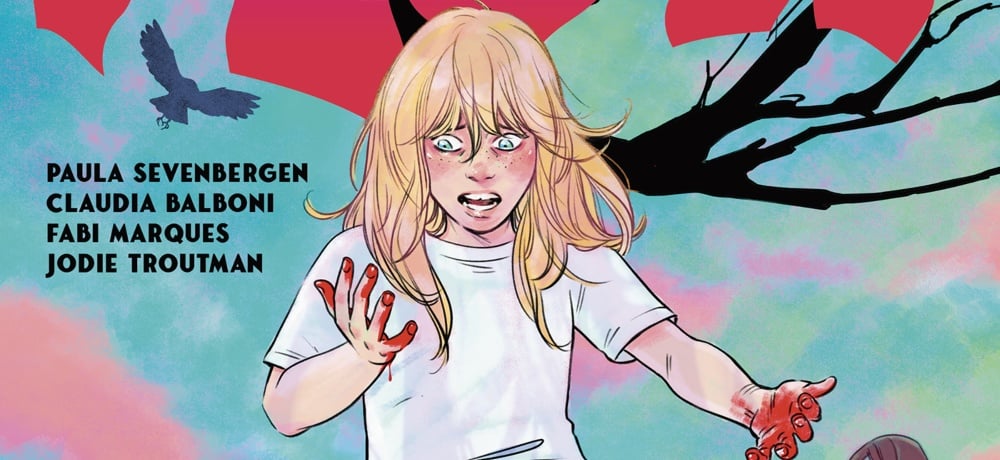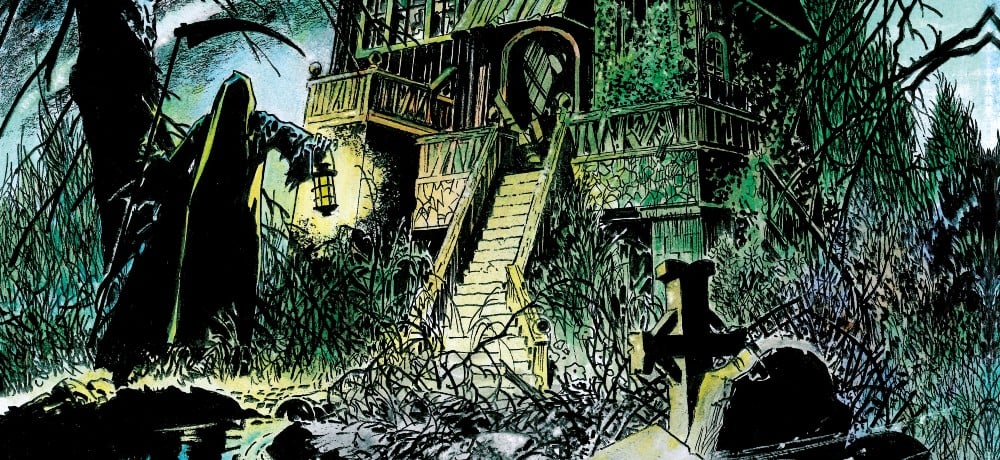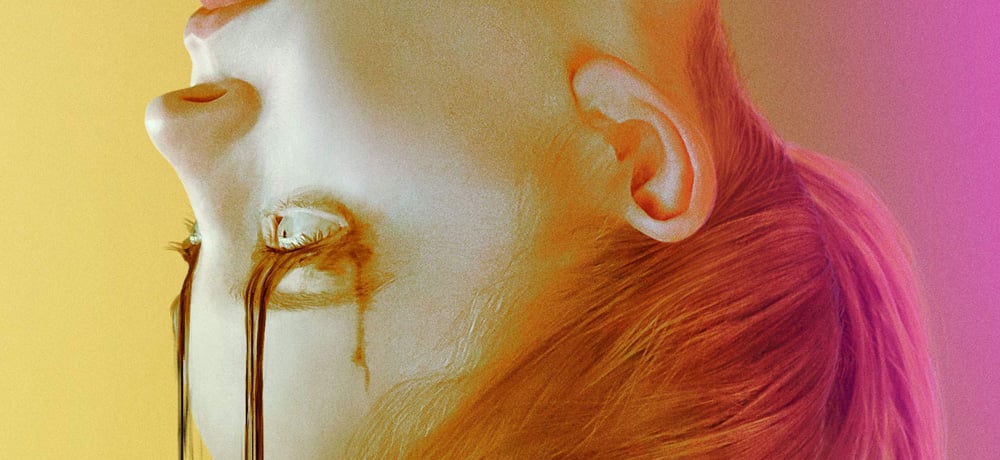






Arriving on Amazon Prime Video today is Nocturne, which is one of the first four films of the Welcome to the Blumhouse collection (two films debuted last week, and we have two premiering today). Written and directed by first-time feature filmmaker Zu Quirke, Nocturne follows twin sisters Juliet (Sydney Sweeney) and Vivian (Madison Iseman), who both attend a music school and dream of making it big as classically trained pianists. But when Juliet struggles to break out as an artist like her sister has, she makes a bargain that will forever change her life, and comes with a hefty price tag attached.
Recently, Daily Dead had the opportunity to speak with Quirke about Nocturne, and she discussed how the project ending up at Blumhouse was something of a surprise for her, and the inspiration behind the story. Quirke also chatted about her experiences collaborating with both Iseman and Sweeney as well as how she approached the music in Nocturne.
Great to speak with you today, Zu. For Nocturne, was this a story that you wrote and then brought to Blumhouse? Or did it come together a different way?
Zu Quirke: I wrote the script. I'm not sure how Blumhouse got hold of it. I just know it ended up on someone's desk and I was told that it was quickly passed through the company. And next thing I knew, having not known that anyone had been reading it at Blumhouse, they were approaching me about being part of this project, the Welcome to the Blumhouse project, and it really went from there. It moved very quickly from then. I was in Britain at the time, and I came over here maybe two or three months after that, to shoot the movie.
Oh, wow. So, that was pretty quick.
Zu Quirke: Yeah, it all happened very quickly.
I looked at your filmography on IMDb before we chatted and I discovered that this is your first feature, which is pretty amazing. Were there any challenges that came with switching from short form storytelling to longer form? I feel like short form is actually harder to do in a lot of ways because you have to really get in there and work quickly to tell those stories, as opposed to having 90 minutes to play around and really immerse your viewers.
Zu Quirke: Yeah, of course. It's a very different beast. The amount of pre-production necessary for a feature is obviously much higher, even though it is easier in the ways you describe. A single day on a feature is probably going to be easier than a single day on a short film. It's just, there are a lot more of the days. I think one of the biggest challenges was always time. We only had four weeks for the pre-production on Nocturne and only 20 days to shoot, which isn’t a lot, so we were always pressed for time.
There were days when we were trying to get 50 or 60 setups and the whole shoot was about problem-solving. It became about problem-solving. "I can't do this, so maybe we can do this. That's not going to work, but potentially it doesn't need to, if we do this in this other scene that we're shooting in two days’ time." And film is full of that, but maybe particularly this production process. It was really exciting and eye opening for me, nevertheless to be involved in, let alone helm a feature effort, and I'm really grateful to Blumhouse and Amazon for the opportunity.
In this film, there’s this idea of art being about sacrifice that you present here. Being a filmmaker, which is a profession where you obviously put yourself into a project, did the thematic ideas from this movie resonate with you on a personal level?
Zu Quirke: Absolutely. And I think whenever you write about something it's because it's personal to you in some way. But I think what the film is really talking about is that very universal feeling you get in your late teens for most people, but maybe earlier or later for others, where you start to marry the artistic fantasies of youth with the practical realities of your future. I think that's the position Juliet's in at the start of this movie; she's trained all her life for this career in music and the arts on a more general level, and she's beginning to realize that everything she's put in, all of the hard work she's dedicated to this pursuit might not pay off for her.
She's faced in short with the real world, and she chooses, rather than to adapt and maybe change her plans, to cling to this fantasy and it's her undoing. I think that's the lesson most of us learn as we grow up. In some ways, I guess it's a film about trying to prolong childhood, trying to cling to something that you should let go. And definitely the girl's age, on the brink of what we call adulthood in the U.K., maybe it's a few years before what you call adulthood in the States, but being 18, it is important to the movie.
The beating heart of this movie are the performances of Sydney and Madison, and their back and forth and their relationship. How was it working with them for these roles in Nocturne? Both of them are really excellent in this film.
Zu Quirke: At the start of this movie, Juliet just wants to be seen. And that's a struggle she has internally, but she projects it onto Vi because Vi is such a close analog for her. Vi is in this unfortunate position of having had the same parents, the same upbringing, having gone through the same career path as Juliet and to have succeeded where Juliet has failed. And so, she is a constant reminder for Juliet of this internal struggle she has, her struggle to be seen, her struggle to realize her fantasies. But we do find out throughout the movie, of course, that maybe Vi's life isn't as perfect as she makes out and she's got her own problems.
Sydney and Madison, who play the characters, are both extremely strong and fierce and creatively minded actors, and I've never seen either of them in roles quite like their roles in this movie before. So, it was really exciting to watch them tackle something with maybe a bit more moral questionability to it than other parts they've taken. We were very lucky to get them. When they came in to read together for the roles, it was incredible seeing them work with one another and working with them for the first time, because they felt like they had known each other for years—there was this sisterhood, this connection between them. We eventually figured out that they'd gone to high school together, which was a really funny little piece of trivia that we had not known beforehand. So, they actually did have a connection and I think they liked working together as well.
I'm going to try to explain this in a way that hopefully doesn't sound dumb, but obviously, music is a huge component to this film and the way that you marry the music with the visuals of the movie works incredibly well. There’s a sense of drama that accompanies the music that you're hearing throughout the film. Can you talk about the musical choices in Nocturne and using them to amp up the drama?
Zu Quirke: So, I wanted to feature some great music and when I was growing up, a lot of the music I listened to was classical. I wanted to showcase how this music can make people feel, even nowadays. I think there is something very powerful about music, something that is cross-cultural and translingual. But yeah, when we shot those music sequences, something that was incredibly important to me was that they look real or at least as real as we could make them on the little time we had.
So, Sydney and Madison both took lessons with a piano teacher in the run-up to the film. They specifically studied the repertoire that they would have to perform in the movie. So, when you watch them at the piano, they're in the right part of the keyboard and they're doing the correct movements and hopefully they look like they're actually playing it. And then, we supplemented that with work from our piano double, Valerie, who was wonderful and recorded the pieces as well. As for shooting the sequences, we just tried to show the journey. I think that the main musical scene in the movie is Juliet's audition. We begin on wides in the house and the auditorium, and with quite a lot of perspective on the sound of the piano, so that we feel quite far away from her, and that's meant to convey her nerves and her outside self looking in.
And then gradually, as we get into the audition and as she gets into her own head, we move into extreme close-ups only and pick Juliet out from the reality around her. I think that sequence works quite well, but the visuals and the music had to be married in what they were trying to convey, which in this sense, in this case, was a voyage into the mind and into Juliet's dreamscape.
---------
Check here to catch up on our previous coverage of the Welcome to the Blumhouse movies that are now streaming on Amazon Prime Video!
[Photo Credit: Above Zu Quirke photo by Kevin Estrada / Amazon Studios, courtesy of Amazon Studios.]